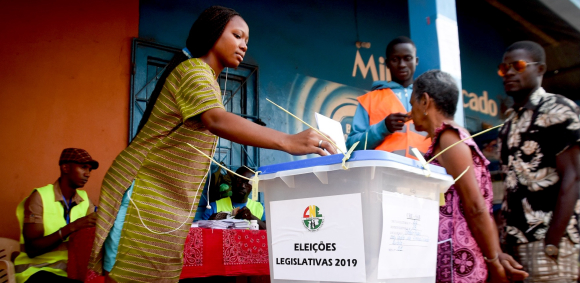Gauteng police have admitted they lack the capacity to confront illegal miners known locally as zama zamas operating underground, exposing a major gap in South Africa’s efforts to combat the expanding illegal mining crisis. Acting Provincial Commissioner Mbuso Khumalo said while officers have made several surface arrests on the West Rand under Operation Shanela, they simply do not have the training or equipment to engage miners in the abandoned tunnels they now use.
Roodepoort Station Commander Brigadier Sekwakwa confirmed the shift in tactics by illegal mining syndicates. “They used to operate on the surface, but now we realise that they’re operating underground, and we don’t have the capability to follow them there,” she said. For now, the South African Police Service (SAPS) is focused on disrupting processing sites, equipment supply chains, and gold smuggling routes above ground, but authorities say greater investment in resources and specialised training is urgently needed.
The vast network of abandoned gold mine shafts across Gauteng and other provinces has become a haven for illegal miners who work in dangerous underground conditions with minimal safety gear. These operations are often linked to powerful criminal syndicates and are estimated to generate billions in illicit gold sales annually. Experts estimate that illegal mining costs South Africa more than R21 billion each year through stolen minerals, lost revenue, and damage to infrastructure.
Recent tragedies have further underscored the danger. In Stilfontein, dozens of zama zamas were found dead in early 2025 after a standoff with police that cut off access to food, water, and ventilation. Human rights organisations criticised the government for failing to implement a safer, more humane resolution.
Communities near these illegal mining hubs also face the consequences, with increased violence, environmental degradation, and rising fears of mine collapses. Meanwhile, zama zamas many of whom are undocumented migrants, often endure exploitative conditions, trapped in a cycle of poverty and criminal exposure.
Despite calls for stronger action, progress remains limited. SAPS has urged the national government to allocate funds for underground response units and to consider policy reforms, such as formalising small-scale artisanal mining under regulated frameworks. Mining unions, civil society groups, and security analysts agree that without a coordinated, multi-sector response, South Africa risks long-term instability in its mining belt.
The government has pledged to work with the Department of Mineral Resources and Energy and international partners to close abandoned shafts and increase oversight. Still, without the tools to confront illegal mining below the surface, the country’s ability to truly tackle the crisis remains uncertain.














Leave a comment